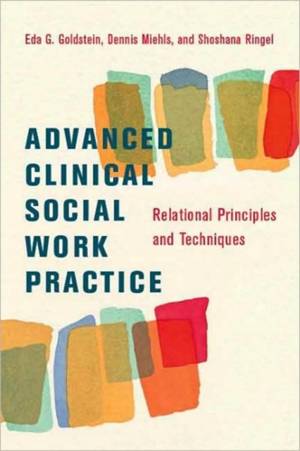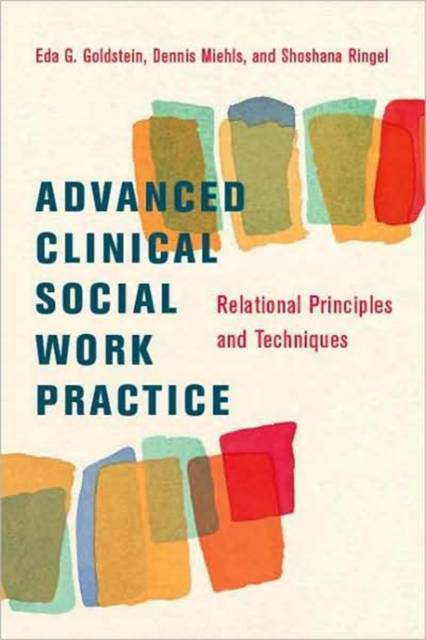
- Afhalen na 1 uur in een winkel met voorraad
- Gratis thuislevering in België vanaf € 30
- Ruim aanbod met 7 miljoen producten
- Afhalen na 1 uur in een winkel met voorraad
- Gratis thuislevering in België vanaf € 30
- Ruim aanbod met 7 miljoen producten
Zoeken
Advanced Clinical Social Work Practice
Relational Principles and Techniques
Eda Goldstein, Dennis Miehls, Shoshana Ringel
Hardcover | Engels
€ 228,95
+ 457 punten
Uitvoering
Omschrijving
Advanced Clinical Social Work Practice traces the development of relational ideas from their origin in object relations and self psychology to their evolution in current relational, intersubjectivity, and attachment theory. Relational treatment emphasizes openness and collaboration between client and therapist, mutual impact, the client's subjectivity, and the therapist's empathy, genuineness, and use of the self in therapeutic interaction. The approach treats the relationship and dialogue between client and therapist as crucial to the change process and shows how the therapeutic relationship can be used to help clients and therapists bridge differences, examine similarities, overcome impasses, and manage enactments. The relational emphasis on the subjective experience of both client and therapist is beautifully illustrated throughout this book as the authors draw from their clinical work with clients from diverse backgrounds, including gay and lesbian clients, immigrants, and clients of color. They demonstrate how relational principles and techniques can be applied to multiple problems in social work practice--for example, life crises and transitions, physical and sexual abuse, mental disorders, drug addiction, and the loss of a loved one. The authors also discuss the integration of relational constructs in short-term treatment and with families and groups. This volume opens with a historical perspective on the role of relational thinking in social work and the evolution of relational theory. It presents an overview of the key concepts in relational theory and its application throughout the treatment process with diverse clients and in different practice modalities. The book concludes with a discussion of the challenges in learning and teaching new theoretical and practice paradigms, particularly in creating a more mutual exchange in the classroom and during supervision.
Specificaties
Betrokkenen
- Auteur(s):
- Uitgeverij:
Inhoud
- Aantal bladzijden:
- 256
- Taal:
- Engels
Eigenschappen
- Productcode (EAN):
- 9780231143189
- Verschijningsdatum:
- 2/09/2009
- Uitvoering:
- Hardcover
- Formaat:
- Genaaid
- Afmetingen:
- 152 mm x 229 mm
- Gewicht:
- 530 g

Alleen bij Standaard Boekhandel
+ 457 punten op je klantenkaart van Standaard Boekhandel
Beoordelingen
We publiceren alleen reviews die voldoen aan de voorwaarden voor reviews. Bekijk onze voorwaarden voor reviews.











